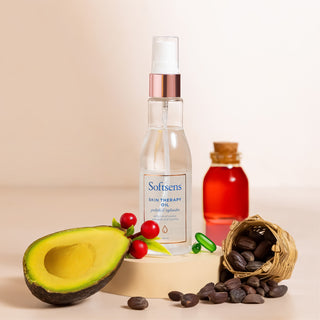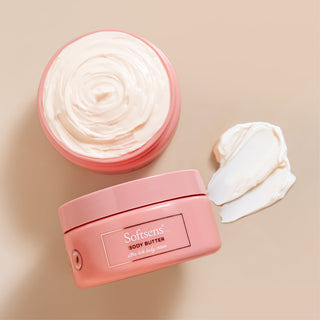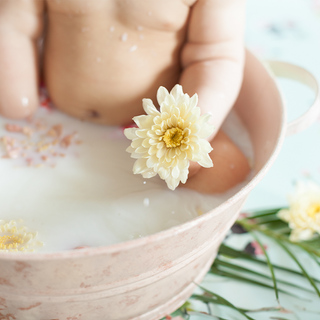
Got a tiny bun in your oven? Here’s our complete list of 18 pregnancy care tips to help you stay safe, nourished and healthy all through your pregnancy.
1. Continue taking your prenatal vitamins
Keep taking your prenatal vitamins throughout your pregnancy. Prenatal vitamins contain essential vitamins & minerals, including ‘folic acid’, which is vital for the health and development of the foetus. It is advisable to start taking these supplements even before you conceive because your baby’s neural cord actually develops within the first few weeks of your pregnancy.
2. Try and maintain a positive state of mind
It’s absolutely normal to feel anxious during your pregnancy. The current COVID-19 situation too can add to this. Try and stay positive by practicing yoga regularly, watching calming videos or listening to soothing music. Avoid reading or listening to news that makes you more anxious and talk to your family and friends whenever you feel stressed or depressed, instead of bottling it up inside. In addition to all the health tips for pregnant women outlined in this article, try and practice relaxation or breathing techniques on a daily basis to help quell your anxiety. Breathing exercises can also be really helpful in preparing you for childbirth. If you feel overly anxious or depressed, speak to your doctor about this and get proper support. Both pre and post-partum depression are real and can take a toll on your mental health. Don’t be afraid to ask for help and support when needed. Here are our 10 Anxiety-relieving Tips for Pregnant Women.
3. Be aware of what kind of foods you should eat during pregnancy and what foods to avoid during your pregnancy
A well-balanced diet with 5-6 smaller meals through the day is ideal for a healthy pregnancy. Try your best to stick to freshly cooked foods and stay away from heavy, processed foods. Focus on eating foods that are rich in folate, iron, calcium, vitamin A, and vitamin B12 as these nutrients support the healthy growth of the foetus. Check out our Top 5 Superfoods for Pregnant Women here. If you’re looking for snack ideas, we’ve also put together 3 Healthy & Delicious Snack Ideas for Pregnant Women.
There are also certain foods that you should avoid during pregnancy. These include:
o High-mercury fish such as swordfish, shark, tilefish, king mackerel
(Fish that is low in mercury such as salmon, shrimp, catfish, are actually good for pregnant women (in moderate amounts) as they are a great source of Omega3 which is crucial for your baby’s brain development)
o Raw or undercooked fish, meat or eggs
o Raw sprouts
o Raw, unpasteurized milk and cheeses (like brie, camembert and other soft cheese)
o Unpasteurized fruit juices
When it comes to fruits and vegetables, make sure to thoroughly wash and peel them to avoid any infection through contamination and cook them well. While pregnant women can drink caffeine, it is advisable to limit the amount of caffeine to no more than 200 mgs on a daily basis. Organ meat such as liver, too, should be consumed only in limited amounts.
4. Exercise regularly and focus on strengthening your pelvic floor muscles
Keeping up with a moderate exercise routine is an important part of pregnancy care. You could even discuss this with your doctor beforehand, especially if you have a complicated pregnancy. Exercising regularly can help keep you from gaining excessive weight during pregnancy, promote better sleep, strengthen your muscles, can help release feel-good endorphins, and helps prepare your body for childbirth. Make sure you include specific exercises that can help strengthen your pelvic floor muscles, as this is not only helpful during labour, but even while your body is healing after your delivery. Before sleeping at night, do some light stretches to help prevent leg cramps. Here are 4 Safe Exercises for pregnant women that you can try at home.
5. Say no to harmful toxins
For a safe and healthy pregnancy, avoid alcohol, tobacco and any kind of illegal drug use. These have been linked to cases of miscarriage, premature birth weight and so on. If you need help navigating this, speak to your doctor for advice and support.
6. Drink at least 8-10 glasses of water per day
Increase your water intake considerably during your pregnancy. This might mean more trips to the bathroom, but it also helps with a healthy pregnancy and reduces certain unwanted pregnancy side effects such as constipation, hemorrhoids, headaches, fatigue and/or swellings.
7. Take care of your changing skin
You’ve probably heard that stretch marks are quite common during pregnancy, but do you also know what other skin changes you should look out for during pregnancy? Click here for a complete guide on Skin Changes during Pregnancy. Learn how to safely care for your skin during pregnancy by reading our blog 8 Skincare Tips to Swear by during Pregnancy. Our 3-step Mama Skincare Kit is made up of 3 deeply-nourishing and must-have skincare products that moms swear by, to help reduce stretch marks, spots, uneven skin tone etc. Check out our complete pregnancy skincare routine here.
8. Prepare and educate yourself on the different aspects of pregnancy, birth and baby care
Preparing yourself for what’s to come will not only help relieve a lot of your anxiety, but also help you deal with your pregnancy and childbirth better. Read books with childbirth and pregnancy tips & advice, look up different birth stories (both positive and negative). Here are 10 helpful books to read while you’re pregnant. Prepare a birth plan for yourself along with your doctor. If possible, take a breastfeeding class or a child birthing class, where you’ll not only gain valuable information but also get the chance to meet other expecting mothers. Getting a head start on shopping for baby essentials can also help lessen some of your stress towards the end of your pregnancy. Here’s a Printable Checklist of all your Newborn Baby Essentials.
9. Yay! Take these chores off your list
There are certain chores that can be harmful during your pregnancy. Here’s what not to do when you get pregnant.
o Most kitchen and bathroom cleaning supplies contain harsh chemicals that can be harmful to you during your pregnancy. Stay away from products with harsh chemicals.
o If you have a cat, let your partner take over changing out the kitty litter. Cat litter can contain a parasite that is harmful to pregnant women
o Avoid lifting heavy objects or standing on a step stool or ladder, especially during the latter half of your pregnancy as your center of gravity shifts a little during pregnancy
o Avoid standing on your feet for prolonged periods of time. Try and take breaks to put your feet up and sit. Try to even avoid standing by a hot cooktop for too long.
o Constant bending could also affect your back and may cause nerve pain so try and avoid chores that involve a lot of bending
10. Check with your doctor before taking over-the-counter medication
There are certain medications that should be avoided or taken in limited quantities to ensure a safe and healthy pregnancy. So, make sure you run it by your doctor before taking any different medication.
11. Make sure that you’re gaining weight at a healthy rate
Weight gain is a natural part of the pregnancy process. However, it is important to make sure that you’re gaining the right amount of weight to support the healthy growth and development of the foetus. Your doctor should be able to provide you with a chart for the same, and will track your weight at every appointment.
12. Avoid entering hot tubs and saunas
Sitting in a hot tub or a sauna can raise your body temperature to over 101 degrees F, which can be harmful for your baby, especially early on in your pregnancy. Avoid exposure to higher temperatures. This is an important pregnancy care tip. Additionally, you also tend to get dehydrated or dizzy easily when you’re pregnant.
13. Wear comfortable clothes and shoes
Did you know that some pregnant mothers actually notice an increase in their shoe size during pregnancy? While this may or may not happen to you, swollen feet and ankles is also fairly common, making it rather uncomfortable to fit into your regular shoes. Buy a pair of comfortable shoes to wear during your pregnancy and pull out all your comfy clothing as well.
14. Always wear sunblock lotion
During pregnancy, your skin is actually more sensitive and thus more vulnerable to sun damage. A lot of pregnant moms also notice darkening of skin, hyperpigmentation or dark spots on their face, known as ‘melasma’. Protect your skin as much as possible by using a sunblock lotion such as the Softsens SPF30 Sunblock lotion for moms & babies. Made from powerful natural ingredients and zinc oxide, it sits atop your skin to create a protective barrier against sun damage. It also nourishes and moisturizes your skin, leaving it soft, smooth and healthy.
15. Wash your hands regularly to keep away any infections
While frequent handwashing is a must whether you’re pregnant or not, it’s even more important during pregnancy to prevent any communicable infections that could possibly harm the foetus.
16. Travel at the right time
Experts recommend that the best time for airline travel during your pregnancy is usually between 14-28 weeks. This is typically a good time because most pregnant moms are past the morning sickness stage, and you still have a while to go for delivery. However, make sure you do check with your doctor before making any travel plans, so that they can evaluate your personal case and clear you for travel.
17. Find a new-mom support group
Once the baby gets here (and even before), you’re going to have a million and one questions, no matter how many books you’ve read, or how prepared you are (and that’s okay)! While your doctor should be able to address most of your queries, it helps greatly to have a support group of new moms who are experiencing the highs and lows of motherhood at the same time. Try and make friends with new/expecting moms in your neighborhood or you could even join an online mommy forum.
18. Be watchful of the signs you need to look out for in case you have to call the doctor
What are normal pregnancy symptoms and what aren’t? Speak to your doctor about this so that you can be prepared in case you need to call the doctor in case of any emergency. Typically, some instances in which you must call your doctor are: vaginal bleeding, pain, dizziness, shortness of breath, amongst others. However, if you do feel like something is not right, don’t hesitate in calling your doctor and checking out the issue.
If you found this pregnancy guide helpful, click here for lots more tips and advice for pregnant Mummas.























